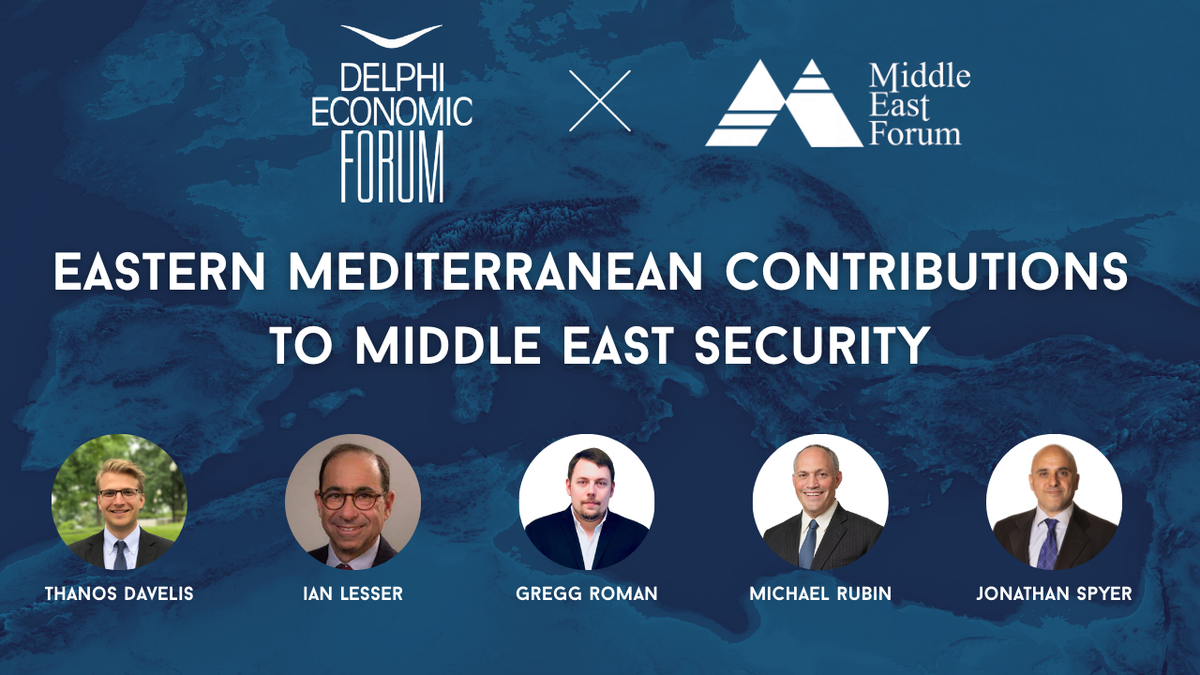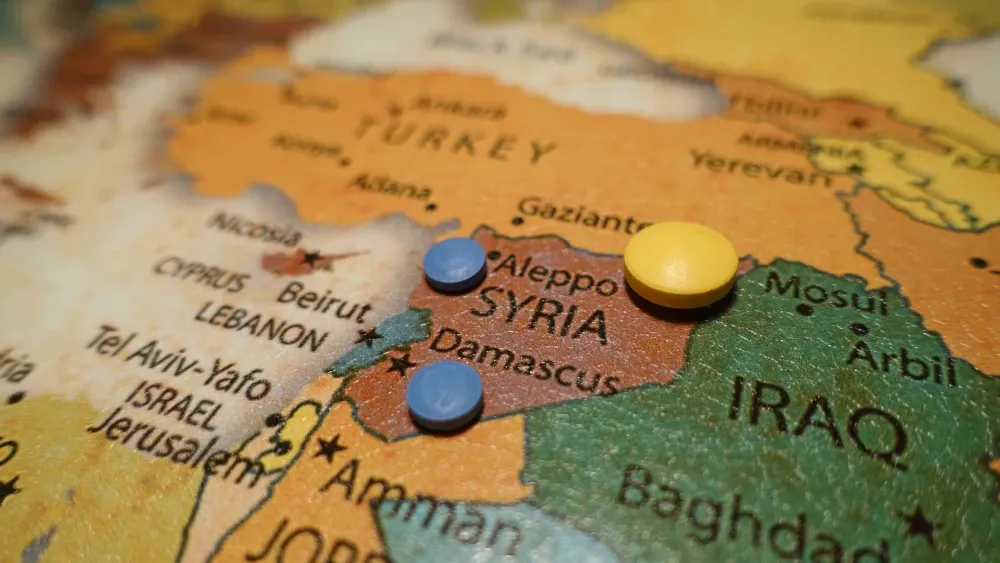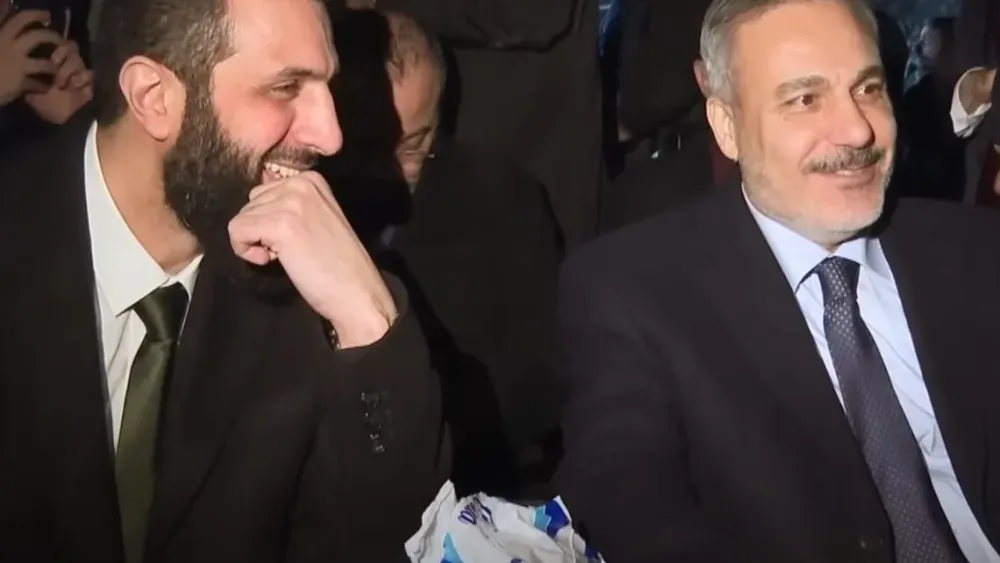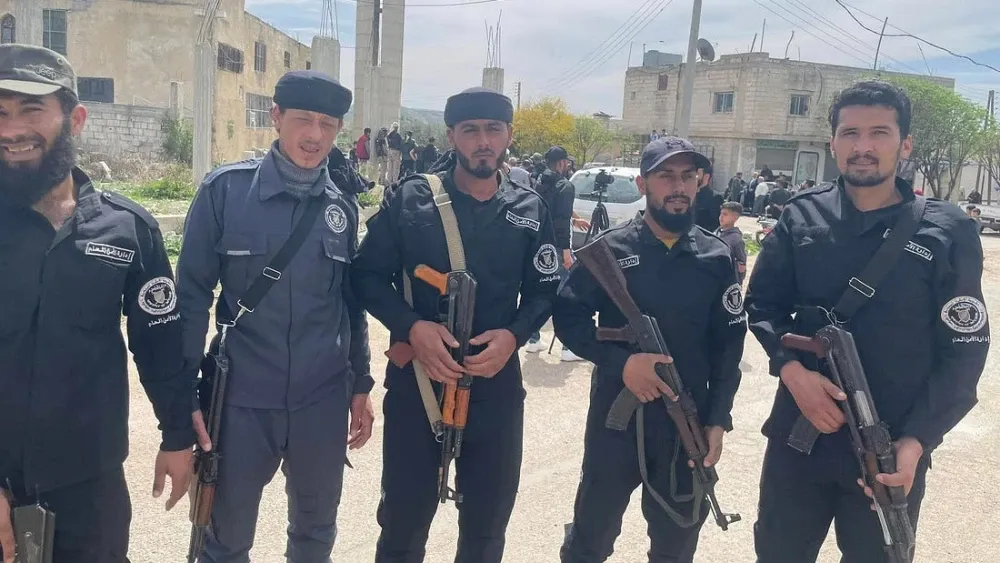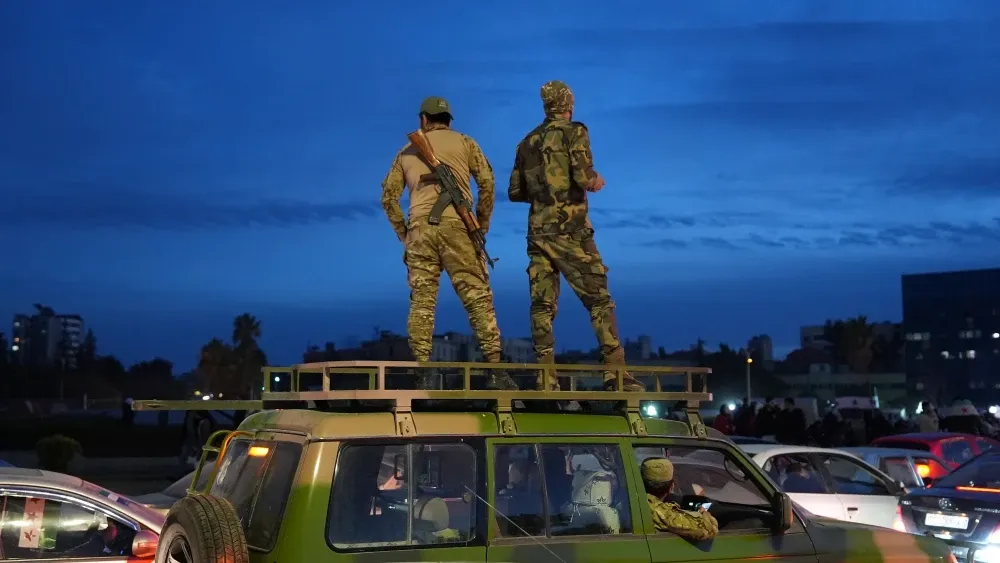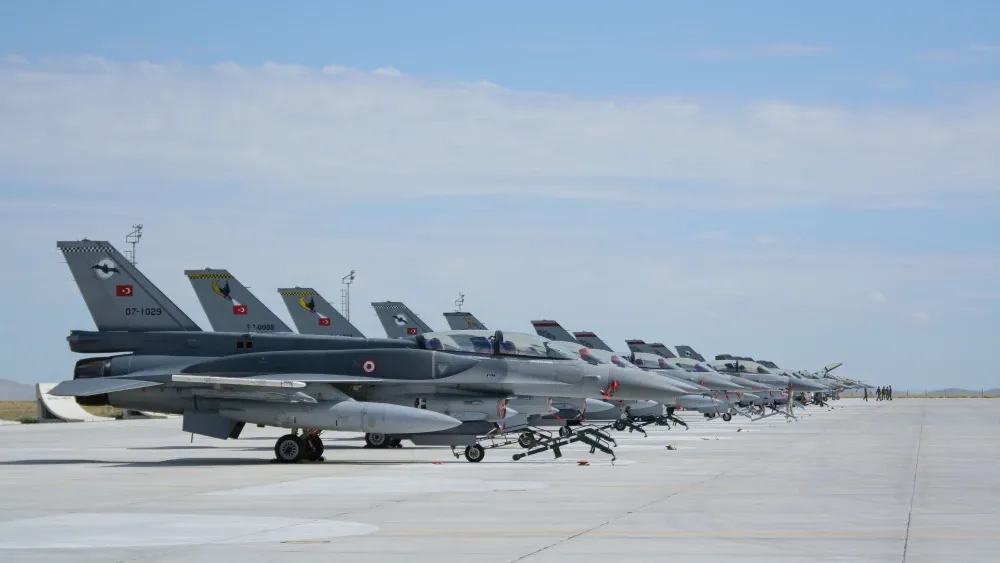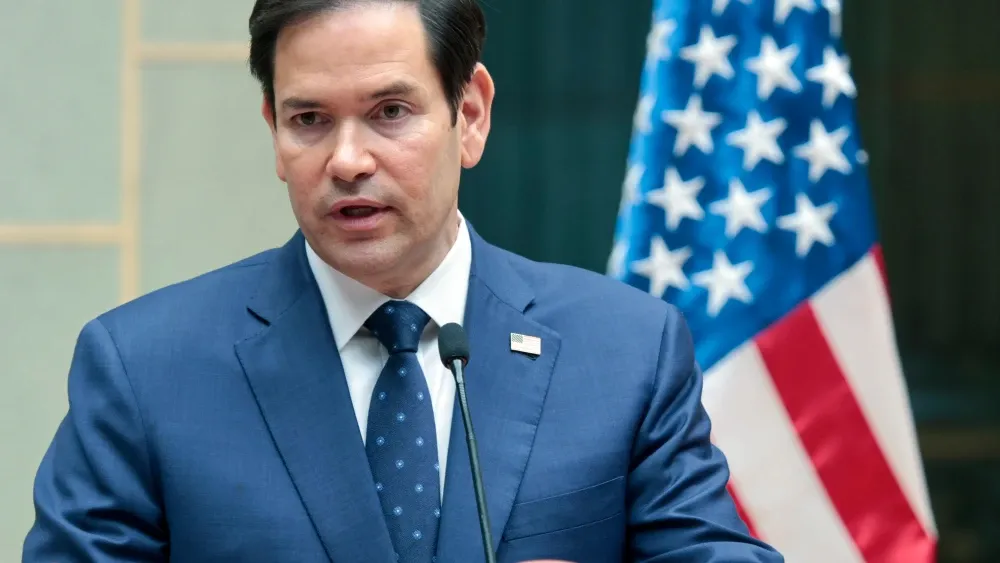| ||
 | ||
| Eastern Med. Security; Syria in Focus: Assad's Narco-State, Al-Sharaa's Nepotistic Rule, and the West's Wishful Thinking By Ahnaf Kalam ● Apr 19, 2025 Smart Brevity® count: 7 mins...1835 words In this edition of the Dispatch, we highlight Middle East Forum (MEF) executive director Gregg Roman, director of research Jonathan Spyer, and director of policy analysis Michael Rubin, who recently took the stage at the Delphi Economic Forum in Greece to discuss the Eastern Mediterranean’s growing influence on Middle East security in a panel alongside Thanos Davelis and Ian Lesser. We then turn our focus to Syria, where MEF has released a decade-long investigation revealing how the Assad regime morphed into a narco-empire, masterminding a vast drug trade to sustain its rule. This exclusive report lays bare the regime’s illicit networks and their devastating effects. Additionally, we examine the operations of the victorious Hayat Tahrir al-Sham under its self-proclaimed president, whose appointment of a radical cleric as Syria’s mufti, coupled with his nepotistic cabinet selections, further confirm his Islamist beliefs. We also warn that the U.S. should not recognize the HTS government lest it empower terrorists. Next, we analyze the dissolution of the pro-Assad regime Eighth Brigade, which signals a major realignment in Syria’s volatile power structure. Finally, we would like to invite all of our readers to the Middle East Forum’s annual policy conference, “Statecraft Reimagined,” taking place from May 19-21 in Washington, D.C. Register now, as space is limited! | ||
MEF Warns of Turkey’s Threat to Eastern Mediterranean Security at Delphi Economic ForumThe Middle East Forum (MEF) recently participated in a high-level panel discussing "Eastern Mediterranean Contributions to Middle East Security" at the Delphi Economic Forum in Greece. Why it matters: The Eastern Mediterranean is increasingly important for regional security, with Turkey's aggressive policies posing significant threats.
Turkey's influence operations: Gregg Roman highlighted Turkey's role in hosting Sunni terror groups, similar to Iran's role with Shia groups.
A new strategic partnership: The panel stressed the importance of the trilateral partnership between Israel, Greece, and Cyprus.
Energy infrastructure at risk: Strategic projects like the Great Sea Interconnector and Eastern Mediterranean pipeline are crucial, yet vulnerable to Turkish disruption.
Regional focus: MEF is expanding its regional efforts, especially post-Hamas's October 2023 attack on Israel, recognizing the Eastern Mediterranean's critical geopolitical importance. To watch the full discussion, click here. | ||
MEF Unveils Decade-Long Undercover Investigation into Syria’s Narco-StateThe Middle East Forum (MEF) has unveiled a decade-long undercover investigation in Syria, documenting how the Assad regime transformed Syria into a narco-state. Why it matters: The findings reveal a vast criminal enterprise involving top Syrian leadership, including the Assad family and Hezbollah.
Key figures exposed: The report identifies Maher al-Assad, Brigadier General Ghassan Bilal, and top Hezbollah commanders as central to the drug trade.
A survival strategy turned empire: Initially a means for regime preservation, Syria's drug operations evolved into a billion-dollar enterprise.
Impact on Syria: The report highlights a growing addiction crisis within Syria, especially in regions recaptured from opposition forces.
To read the full investigative report, click here. | ||
Ahmed al-Sharaa’s Pick for Syria’s Mufti Shows He Is No Moderate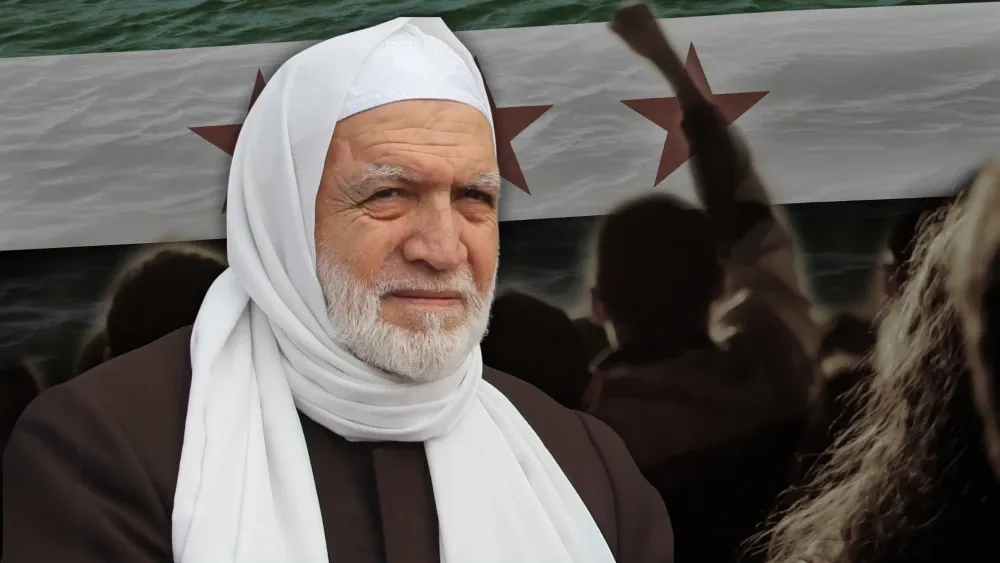 By: Kamal Chomani Self-appointed Syrian President Ahmed al-Sharaa has named Sheikh Osama Al-Rifa’i as Syria's Grand Mufti, signaling continued disregard for the interests of the country's ethnic and religious minorities. Why it matters: Al-Rifa’i's history of supporting Turkish military actions against Kurdish territories raises serious security concerns among minorities.
Historical context contrasts: Previous fatwas by leaders like Imam Sayyid Mohsen al-Hakim and Grand Ayatollah Ali al-Sistani were considerably more moderate than Al-Rifa’i's divisive stance.
Al-Sharaa's true colors: Despite projecting moderation, Al-Sharaa's cabinet excludes Kurds and exacerbates sectarian divides.
Concerns for minorities: The regime's neglect of Kurds, Shi’a, Druze, and other groups further confirms fears of increased polarization and conflict.
To read the full article, click here. | ||
Like Assad, Al-Sharaa Puts Family First in SyriaSince Bashar al-Assad's fall, Ahmed al-Sharaa, leader of Hay’at Tahrir al-Sham, has positioned himself as Syria’s interim president, while consolidating power through family appointments. Why it matters: Al-Sharaa's moves echo the Assad regime's nepotism, threatening Syria's fragile peace and stability.
Family at the helm: Al-Sharaa's brother Maher is now Syria’s general secretary, a strategic post bolstered by his ties to Russia.
Historical echoes: Nepotism has long marked Syria's governance, but al-Sharaa’s approach carries a distinct post-conflict character.
Al-Sharaa's true colors: Despite projecting a moderate image internationally, his actions reveal an intent to cement familial control over Syria's political ecosystem.
To read the full article, click here. | ||
The Dissolution of the Eighth Brigade in DeraaThe Eighth Brigade, a local armed group based in southern Syria, announced its dissolution amid efforts by the new Hayat Tahrir al-Sham (HTS) government in Syria to impose control over the region. Why it matters: The dissolution marks a step towards consolidating authority in Syria's volatile regions, crucial for the government's stability efforts.
A history of adaptation: Formed in 2018 under Assad's regime, the Eighth Brigade transitioned from a Russian-backed entity to an Assad regime-affiliated militia.
Security and stability goals: The move is part of a broader strategy to integrate local armed groups into the national framework, aiming to reduce security incidents like assassinations in Deraa.
Challenges remain: While dissolving the Eighth Brigade is a significant step, integrating other factions, like the Druze in al-Suwayda’ and Kurdish-led forces, remains a complex challenge for Syria's HTS leaders. To read the full article, click here. | ||
Is the U.S. Repeating Its Somalia Mistakes in Syria?The United States, Europe, and the United Nations risk repeating their Somalia mistakes in Syria if they recognize, de facto or more formally, self-declared President Ahmad al-Sharaa. Why it matters: Embracing illusions of progress in Syria will undermine security and foster terrorism, as it did in Somalia.
Complex patchworks: Like Somalia, Syria is a mosaic of clans, tribes, and interests, with no single leader in full control.
Illusory progress: Al-Sharaa’s promises of reform are belied by his cabinet's exclusion of minorities and the promotion of Osama al-Rifa’i as Syria's top religious figure.
Lessons not learned: Diplomats hoping al-Sharaa can bring stability may find that premature legitimacy only makes Somalia's past Syria's future. Just as the U.S. bolstered groups like Al-Shabaab, so it will also go on to empower Hayat Tahrir al-Sham (HTS) and other violent Islamist groups in Syria should it extend formal recognition of his government.
To read the full article, click here. | ||
Congress Needs to Ensure Israel’s Qualitative Military Edge Against TurkeyThe United States must reassess its Qualitative Military Edge (QME) to ensure that Israel's defense capabilities surpass Turkey's growing military power. Why it matters: Turkey's aggressive posture and military expansion pose a significant threat to Israel, comparable to Iran.
QME in a new era: Originally designed to maintain Israel's technological advantage over Arab states, QME must now adapt to Turkey's warmongering and aggression.
Congressional action needed: To counter Turkey's threat, Congress should reformulate QME to prioritize Israel and Greece's security interests.
Strategic recalibration: While President Trump believes he can negotiate with Erdoğan, Congress must act to set legal guardrails to prevent military imbalances.
To read the full article, click here. | ||
The United States Should Ramp Up Pressure to Force Azerbaijan to Release Armenian HostagesThe United States must leverage its diplomatic and economic tools to pressure Azerbaijan into releasing the arbitrarily-detained Armenian hostages. Why it matters: Azerbaijan's detention of Armenians is a blatant violation international law and human rights.
Leveraging U.S. influence: The U.S. has the power to delay a $100 million loan for Boeing jet sales to Azerbaijan until all Armenian hostages are free.
Diplomatic stance: The State Department should withhold sending an ambassador to Baku until Azerbaijan engages seriously with the international calls for their compliance with international laws and norms.
Cutting aid: U.S. foreign assistance to Azerbaijan has declined, reflecting America’s stance against human rights abuses.
To read the full article, click here. | ||
| We hope you’ve enjoyed this edition of the Dispatch. If you would like to continue supporting the Middle East Forum’s work, you can share this edition with a friend, sign up for our mailing list, and subscribe to the MEF podcast series. We wish you all a fine weekend and hope to see you in the next edition. | ||
| Was this edition useful? Your email will be recorded and shared with the sender | ||
| Powered by | ||
| ||

